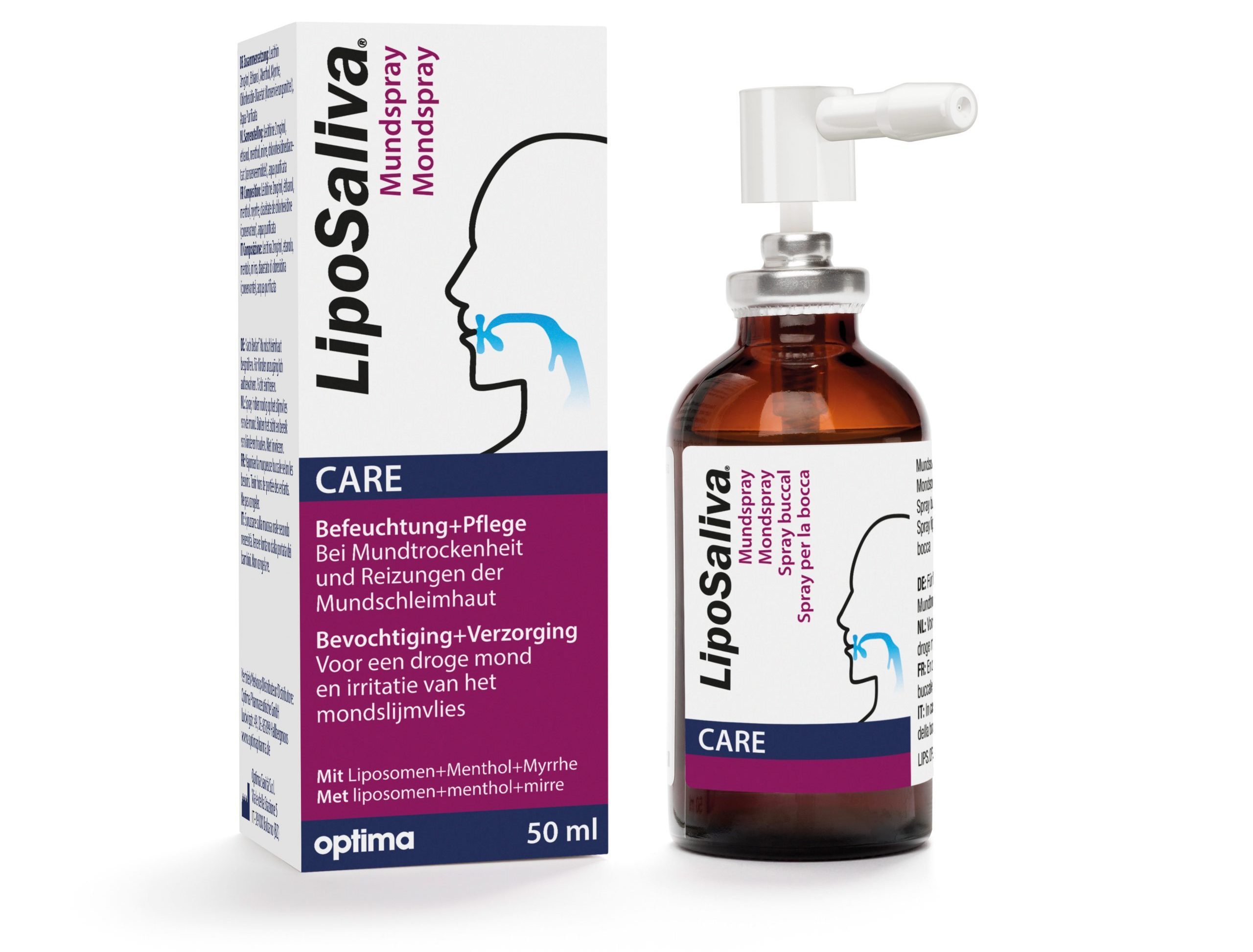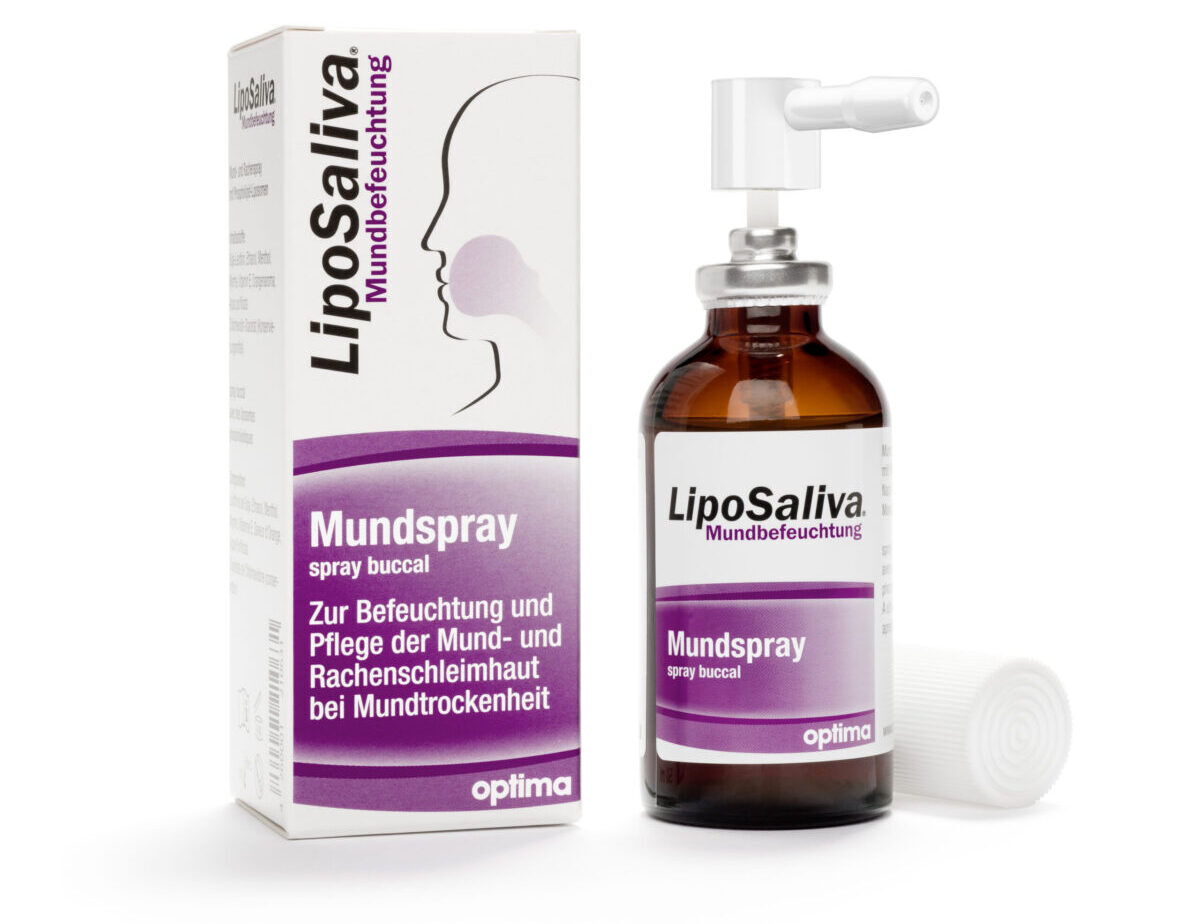LipoSaliva® is used for moisturisation and care of the mucous membranes of the mouth and throat in case of dry mouth and irritation.
LipoSaliva® contains liposomes consisting of phospholipids, which are also important components of the natural saliva. LipoSaliva® moisturises the mucous membranes in mouth and throat and provides long-lasting relief from discomfort.
Topics around LipoSaliva®
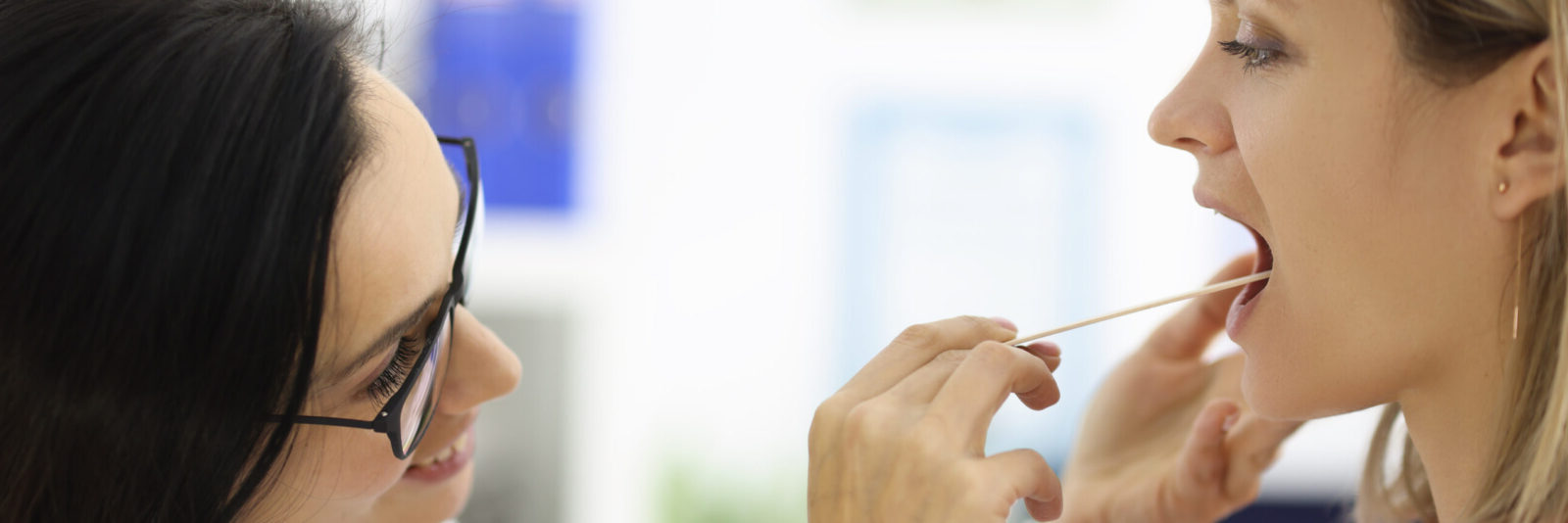
Saliva and dry mouth
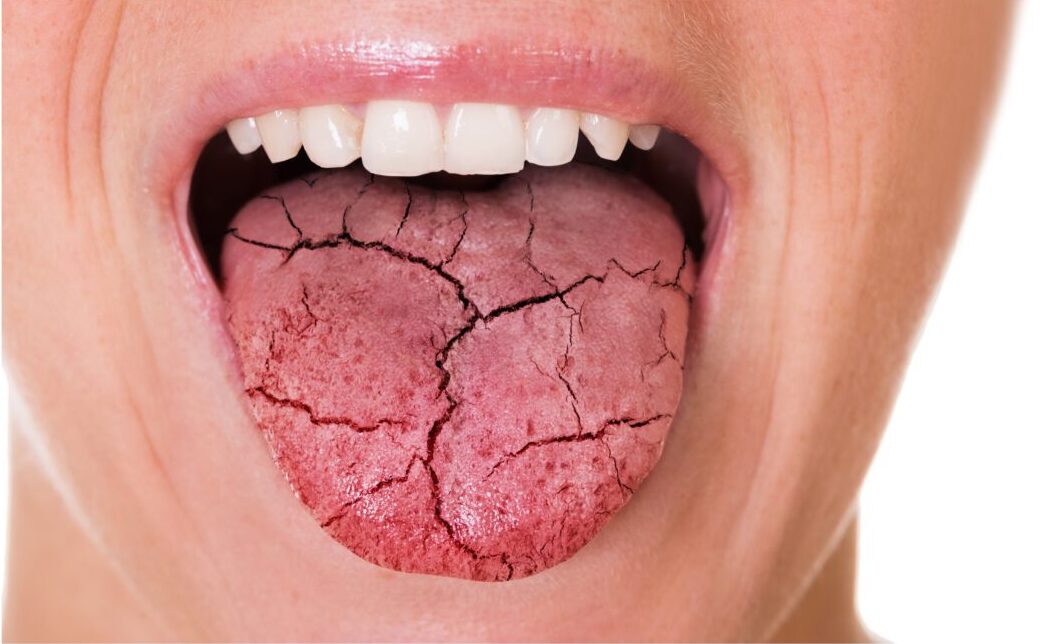
Salivary glands on ears, lower jaw and under the tongue, as well as numerous small salivary glands in the mouth, usually produce up to 1.5 litres of saliva per day.
The mucous membranes in oral cavity and throat are moistened, protected, and cleaned by the saliva produced in the salivary glands. Saliva is used, among other things, to defend against bacteria, viruses, and fungi and to protect against caries. It is also essential for food intake (swallowing) and digestion.
The term “dry mouth” includes both the subjectively felt and the objectively measurable dry mouth. The subjective feeling is called xerostomia.
Hyposalivation is the objective evidence of a reduced salivary flow rate.
The term salivary gland dysfunction (functional disorder of the salivary glands) is used to describe any quantitative or qualitative change in the amount of saliva. This includes a reduction (hyposalivation), increase (sialorrhoea or drooling) or also a change in the saliva composition.
Dry mouth: Causes and effects
Many people are familiar with these symptoms: Despite drinking, the mouth constantly feels dry and sticky. In some cases, swallowing becomes so difficult that problems arise when eating. At night and generally when sleeping, the feeling of dryness becomes even stronger.
Possible consequences of dry mouth include:
- Problems in swallowing and chewing
- Burning in the mouth or on the tongue (burning mouth syndrome)
- Problems in speaking, especially hoarseness
- Inflammation of the oral mucosa
- Increased plaque and increased incidence of dental caries
- Impaired taste perception
- Bad breath
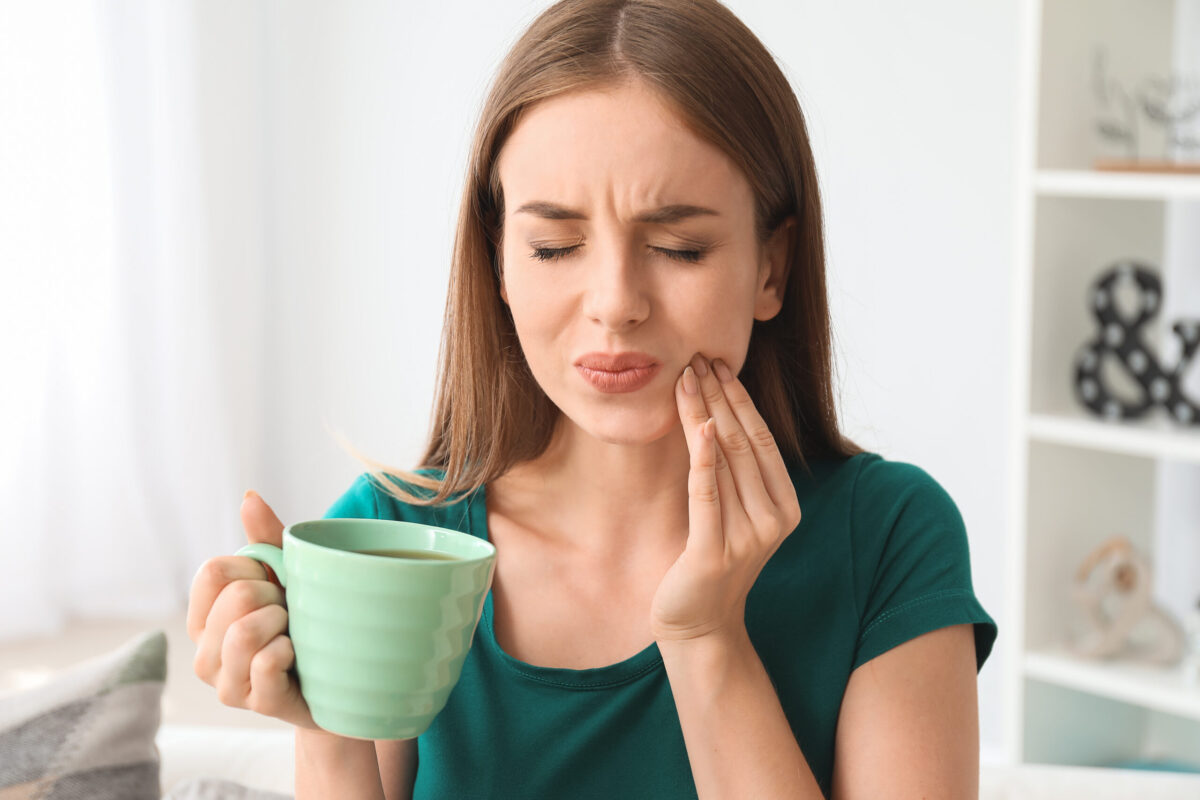
The causes of dry mouth can be manifold, in particular:
- Side effects of medicines. Many medicines cause reduced saliva production, especially:
- Anticholinergics (to treat bronchoconstriction in airways disease)
- Antihypertensives (to treat hypertension i.e. high blood pressure)
- Antidepressants (to treat depressive disorder)
- Chemotherapeutics (to treat cancer)
- Radiation therapy of head and neck tumours, if the salivary glands are also irradiated and damaged in the process
- Concomitant phenomenon to several diseases (e.g. Sjögren’s Syndrome, diabetes mellitus, thyroid disease)
- Disease of the salivary glands (e.g. salivary gland tumour, salivary stones, sialadenosis)
- Mouth breathing (e.g. snoring, sleep apnoea, CPAP therapy)
- Hormonal imbalances during and after the menopause
- Lack of fluid intake
- Stress
- Smoking
- Depressive and anxiety disorders
The number of people affected increases within the age, which is mainly influenced by the increasing use of medication by elderly people.
Constant dry mouth can lead to painful inflammation of the oral mucosa or salivary glands. Therefore, persistent discomfort should be clarified by an otorhinolaryngologist as early as possible.
Treatment
In addition to general measures (drinking enough, chewing gum) and behavioural changes (abstaining from tobacco, coffe and alcohol), so-called saliva substitutes are available to alleviate the symptoms.
LipoSaliva® contains liposomes consisting of phospholipids, which are also important components of the natural saliva. LipoSaliva® moisturises the mucous membranes in mouth and throat and provides long-lasting relief from discomfort.
In clinical studies the use of LipoSaliva® resulted in a significant improvement of discomfort.
A significant improvement was also observed regarding existing taste disorders.
References:
Hofauer B, Bas M, Manour N et al.
Liposomal local therapy as treatment for sicca symptoms in patients with primary Sjögren’s syndrome
HNO 61, 921–927 (2013).
Heiser C, Hofauer B, Scherer E, Schukraft J, Knopf A.
Liposomal treatment of xerostomia, odor, and taste abnormalities in patients with head and neck cancer.
Head Neck. 2016 Apr;38 Suppl 1:E1232-7.
Hofauer, B., Mansour, N., Heiser, C. et al.
Effect of liposomal local therapy on salivary glands in acoustic radiation force impulse imaging in Sjögren’s syndrome.
Clin Rheumatol 35, 2597–2601 (2016).



